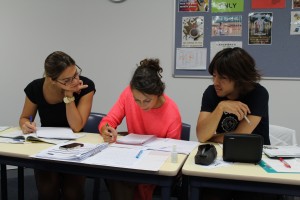
G’day Guys,
It’s Matt here, Director of Studies of Langports Brisbane.
Learning grammar in any language is difficult, and English, with a minefield or past/present/ future/perfect/passive/conditionals/etc, is no exception. To make it even worse, we often learn ‘grammar rules’ at each level in English, only to find that as you progress to Upper-Intermediate and Advanced levels, you learn you can ‘bend’ or even break some of these rules!
However, there’s no need to get depressed learning grammar!! The process of learning grammar is always going to involve a trial (practice) and error (make mistakes) approach. Making mistakes when using different grammar tenses, and learning from those mistakes, is key for any language learner to progress their skills.
Today, let’s talk about our good old grammar friend, conditionals!

Conditional Structures
Conditional structures are usually formed using the word if (but to confuse matters further we use whether after a preposition in conditional sentences!) and consist of two clauses — a main clause using a verb in a form usually with will or would, and a subordinate clause that uses if:
> I’ll drive tonight (main clause) if your car is broken (subordinate clause).
It is important to note we can usually change the order of the clause in conditional sentences. If you begin a conditional sentence with the subordinate clause, you must use a comma to separate the two clauses:
> If your car is broken (subordinate clause), I’ll drive tonight (main clause).

Different Conditionals
Conditionals can be broken up into different types. Here’s a simplified list of possible conditionals:
- Zero Conditional (if + infinitive, infinitive) — to express general truths
> If you heat ice, it melts.
or
> Ice melts if you heat it.
- 1st Conditional (If + infinitive, will + infinitive) — to talk about the future
> If it rains tonight, I will get wet.
or
> I will get wet if it rains tonight.
- 2nd Conditional (if + past simple, would + infinitive) — to talk about something very unlikely or impossible (hypothetical)
> If I had a million dollars, I would study forever at Langports!
or
> I would study forever at Langports if I had a million dollars!
- 3rd Conditional — (If + past perfect, would + present perfect) – to speculate about past events, in particular expressing regret
> If I had studied English more at school, I would have started Langports at Intermediate level!
or
> I would have started Langports at Intermediate level if I had studied English more at school!
The problem comes that as you become a more proficient English language user, you begin to notice that native English speakers actually mix conditional structures — a case of bending those grammar rules you learn in class! However, mixed conditionals are a story for another day!
Go forth and practice your conditional structures.
Until the next time…
Matt